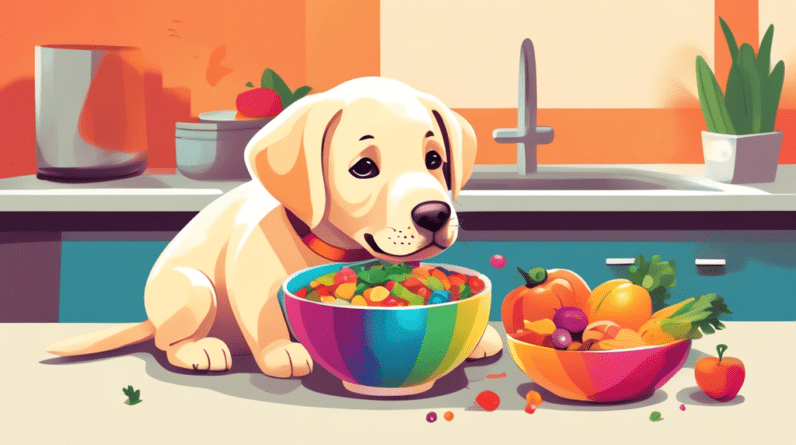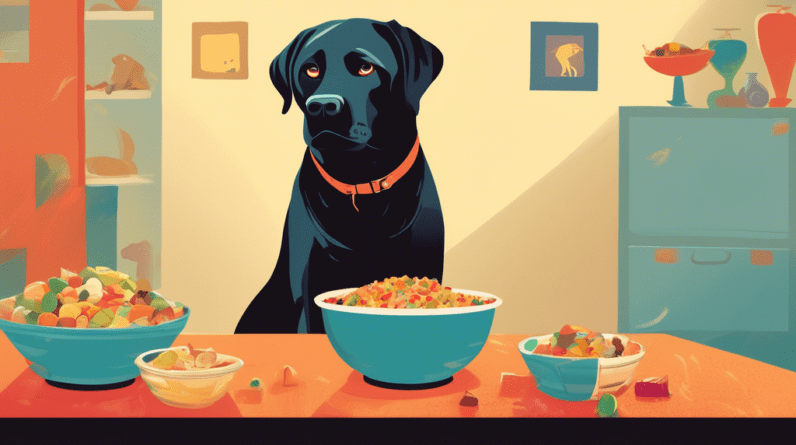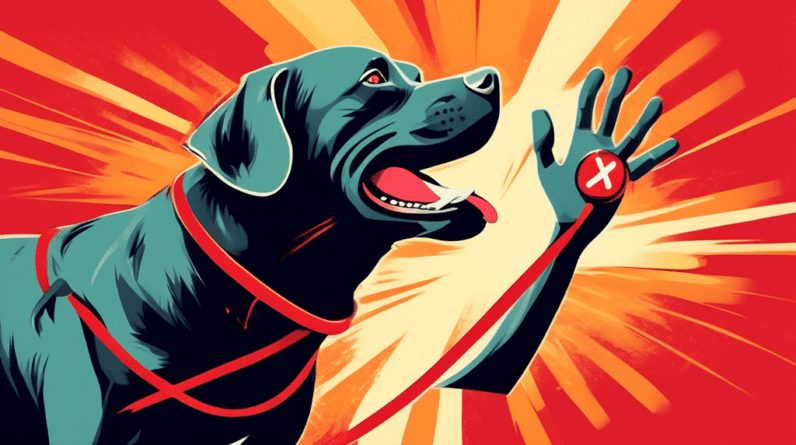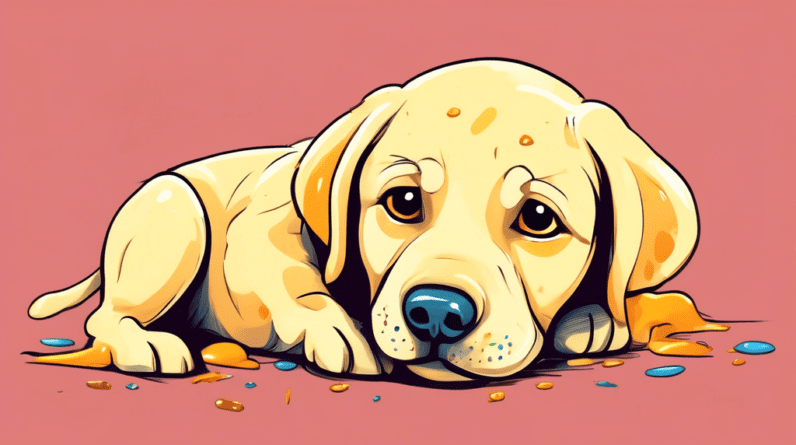
Introduction
Bringing home a Labrador puppy is an exciting time for any family. These energetic and loving dogs quickly become cherished members of the household. As with any new puppy, ensuring your Labrador puppy receives the right nutrition is crucial for their growth, development, and overall well-being. Providing a balanced and nutritious diet tailored to their specific needs will set them on the path to a healthy and happy life. This comprehensive guide delves into the dietary requirements of Labrador puppies, providing you with all the information you need to make informed decisions about their feeding regimen.
Understanding Labrador Puppy Nutritional Needs
Labrador puppies are considered a medium- to large-breed dog, and their nutritional needs differ significantly from those of smaller breeds or adult dogs. These adorable bundles of energy have specific dietary requirements that must be met to support their rapid growth and development. Here’s a breakdown of the essential nutrients your Labrador puppy needs:
- Protein: As a building block for healthy muscles, tissues, and organs, protein is essential for your Labrador puppy’s growth. Look for puppy food with high-quality animal-based protein sources, such as chicken, fish, beef, or lamb, as the primary ingredient.
- Fat: While often demonized, fat is crucial for providing your puppy with energy and supporting brain and eye development. Choose puppy food with healthy fats like chicken fat, fish oil, or flaxseed oil.
- Carbohydrates: Carbohydrates are another essential energy source for your growing Labrador. Opt for puppy food with digestible carbohydrates like brown rice, oatmeal, or sweet potatoes.
- Calcium and Phosphorus: These minerals are crucial for developing strong bones and teeth. The right balance of calcium and phosphorus is vital for preventing skeletal problems, especially in large-breed puppies like Labradors.
- DHA: Docosahexaenoic acid, an omega-3 fatty acid, is vital for brain and eye development. Look for puppy food with DHA, often found in fish oil.
Choosing the Right Puppy Food
Navigating the overwhelming number of puppy food options available can be daunting. Selecting the right food is paramount to ensure your Labrador puppy receives the proper nutrients. Here are some key factors to consider when choosing the best food for your furry companion:
- Age: Puppies have different nutritional needs at various life stages. Look for puppy food specifically formulated for their age, such as food labeled for large breed puppies or puppies up to 12 months.
- Breed Size: Large-breed puppy food is designed to support the unique growth patterns and needs of larger dogs, such as Labradors. These formulas often contain controlled levels of calcium and phosphorus to promote healthy bone development.
- Ingredients: Always check the ingredient list before purchasing any puppy food. The first few ingredients should be high-quality protein sources, followed by healthy fats and digestible carbohydrates. Avoid foods with artificial colors, flavors, or preservatives, as these can be harmful to your puppy’s health.
- AAFCO Statement: Look for a statement from the Association of American Feed Control Officials (AAFCO) on the packaging. This statement confirms that the food meets the nutritional requirements for puppies.
- Your Veterinarian’s Recommendation: Consulting with your veterinarian is always recommended when choosing puppy food. They can assess your Labrador’s specific needs, such as any health concerns or allergies, and recommend the most suitable options.
Feeding Schedule and Amount
Establishing a consistent feeding schedule and providing the appropriate amount of food is crucial for your Labrador puppy’s health and well-being. Here’s a general guideline for feeding Labrador puppies:
|
Age |
Feeding Times per Day |
Daily Food Amount |
|
8-12 weeks |
3-4 |
As directed by the food label or your vet |
|
3-6 months |
2-3 |
As directed by the food label or your vet |
|
6-12 months |
2 |
As directed by the food label or your vet |
It’s essential to follow the feeding guidelines provided on the puppy food label and consult with your veterinarian. They can help you determine the appropriate amount of food based on your puppy’s age, activity level, and overall health. Remember, these are general guidelines, and your puppy’s needs may vary.
Transitioning to New Food
When bringing your Labrador puppy home, you’ll likely need to transition them to a new food, whether from their breeder or a previous owner. Abruptly switching your puppy’s food can lead to digestive upset, including diarrhea or vomiting. Instead, gradually introduce the new food over 7-10 days using the following steps:
- Start by mixing a small amount of the new food with your puppy’s current food, gradually increasing the ratio of new food over several days.
- Monitor your puppy for any digestive issues during the transition. If you notice diarrhea or vomiting, slow down the transition process and consult your veterinarian.
- Once your puppy is eating the new food exclusively without any problems, you have successfully transitioned their diet.
Foods to Avoid
While Labrador puppies are generally not picky eaters, certain foods can harm their health and should be avoided. These include:
- Chocolate: Chocolate contains theobromine, a compound that is toxic to dogs. Even small amounts of chocolate, especially dark chocolate, can cause vomiting, diarrhea, increased thirst, panting, hyperactivity, tremors, seizures, and even death.
- Grapes and Raisins: Grapes and raisins can cause kidney failure in dogs. The exact substance that causes toxicity is unknown, but even small amounts can be dangerous.
- Onions and Garlic: Onions and garlic, in all forms (raw, cooked, or powdered), contain compounds that damage red blood cells in dogs, leading to anemia. This can cause weakness, lethargy, loss of appetite, pale gums, and rapid breathing.
- Macadamia Nuts: Macadamia nuts can cause weakness, tremors, vomiting, hyperthermia, and depression in dogs. The exact mechanism of toxicity is unknown.
- Xylitol: Xylitol is an artificial sweetener found in many sugar-free products, including gum, candy, and some peanut butter brands. It can cause a rapid release of insulin in dogs, leading to a dangerous drop in blood sugar (hypoglycemia). Symptoms of xylitol poisoning include vomiting, weakness, lethargy, tremors, seizures, and liver failure.
- Cooked Bones: Cooked bones, unlike raw bones, can splinter easily and cause choking or serious damage to your dog’s digestive system.
- High-Fat Foods: While fat is essential, excessive fat, especially from table scraps, can lead to digestive upset, obesity, and pancreatitis, a painful inflammation of the pancreas.
Supplements to Consider
In most cases, a high-quality, balanced puppy food will provide all the nutrients your Labrador needs. However, your veterinarian may recommend supplements in certain circumstances, such as:
- Glucosamine and Chondroitin: These supplements support joint health and are often recommended for large-breed puppies prone to joint issues like hip and elbow dysplasia.
- Fish Oil: If your puppy’s food doesn’t contain enough DHA, supplementing with fish oil can benefit brain and eye development.
- Probiotics: Probiotics can support digestive health, especially during times of stress, such as transitioning to a new home or food.
It’s essential to consult your veterinarian before giving your Labrador puppy any supplements, as they can advise on the appropriate type, dosage, and potential risks or interactions.
Monitoring Your Puppy’s Growth and Adjusting Feeding
As your Labrador puppy grows, their nutritional needs will change. Regularly monitor their growth and body condition to ensure they’re receiving the right amount of food. You can assess their body condition by:
- Visual Check: Look at your puppy from above. They should have a visible waist behind their ribs. From the side, their abdomen should be tucked up.
- Rib Check: Feel your puppy’s ribs. You should be able to feel their ribs easily, but they shouldn’t be visible. If you can’t feel their ribs or if they are very prominent, adjust their food accordingly.
If you notice your puppy is gaining weight too quickly or becoming overweight, reduce their food intake slightly. If they are not gaining enough weight or seem to be losing weight, increase their food intake slightly. It’s best to consult with your veterinarian to determine the appropriate adjustments to make.
Conclusion
Proper nutrition is crucial for Labrador puppies’ growth, development, and well-being. By understanding their unique dietary requirements and following these guidelines, you can provide your furry companion with the best possible start in life, setting them on the path to a healthy and fulfilling life. Remember to choose high-quality puppy food, establish a consistent feeding schedule, avoid harmful foods, and consult your veterinarian for personalized advice.






